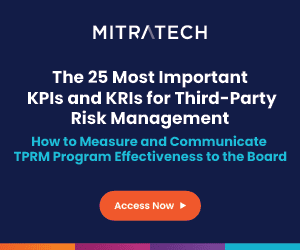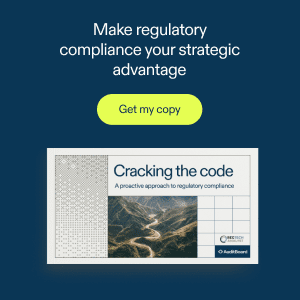The financial services sector is increasingly taking interest in a new, innovative and potentially disruptive technology that could revolutionize how the industry operates. This technology, known as Distributed Ledger Technology (DLT) or blockchain, was borne out of the operational platform behind bitcoin transactions and, according to many technology companies, is the future of the financial services sector. DLT is touted as an emerging technology that can provide a transparent way to digitally track the ownership of assets, speed up transactions, facilitate secure payment processing and electronically initiate and enforce contracts. With growing competition from financial technology companies, banks and traditional financial services entities are taking a closer look at how DLT can improve the efficiency, speed and security of financial transactions. As a result, DLT is quickly becoming a game changer for financial institutions looking to develop applications, standards and best practices to improve data management and security.
At a very high level, DLT is a data structure that creates a digital ledger of transactions that can be distributed through a network of computers, allowing details of the transaction, or the transaction’s database, to be accessed, viewed and potentially updated by a number of different parties. This differs from the traditional, centralized ledger system, where a single party was responsible for maintaining the details of the transaction. DLT allows companies to be registered on the distributed ledger, links those companies to real world identities and provides a historical record of all documents shared and compliance activities undertaken by each registered user.
DLT is made possible through the application of encryption and algorithms that allow new transactions to be aggregated, encoded and appended to an existing chain of transactions. Put simply, any time a change to data or an asset is proposed, a unique digital fingerprint is created. That fingerprint is sent to another part of the network chain for validation. Validation is organized around the networks’ previously agreed-upon rules, which would be unknown to parties not part of the network. These features enable network participants to validate the accuracy of new transactions and prevent the history of transactions from being modified.
As with most industry-wide innovations, especially in the financial services sector, regulators are taking an increased interest in how this technology will affect the need for new or revised regulation and regulatory oversight. In April 2016, the chair of the Securities and Exchange Commission (SEC) addressed blockchain technology, stating, “One key regulatory issue is whether blockchain applications require registration under existing Commission regulatory regimes, such as those for transfer agents or clearing agencies. We are actively exploring these issues and their implications.” Most recently, in June 2016, the Financial Stability Oversight Counsel (FSOC) addressed DLT risks, including “credit risks associated with the use of new and untested underwriting models.” The FSOC stated, “financial regulators will need to continue to be vigilant in monitoring new and rapidly growing financial products and business practices, even if those products and practices are relatively nascent and may not constitute a current risk to financial stability.”

Traditionally, financial regulators have worked with market infrastructures and firms which facilitate trading and settlement, such as exchanges, dealers and clearinghouses, to monitor markets and, in some cases, regulate market activity. The FSOC pointed out that,
“to the extent that [DLT] reduces the importance of these types of centralized intermediaries, regulators will need to adapt to the changing market structure. Furthermore, since the set of market participants which makes use of a distributed ledger system may well span regulatory jurisdictions or national boundaries, a considerable degree of coordination among regulators may be required to effectively identify and address risks associated with distributed ledger systems.”
DLT appears poised for substantial near-term growth and use in the financial services sector. As a result, it is expected that financial regulators will continue to monitor and evaluate the implications of how new products and practices affect regulated entities and financial markets. As federal banking regulators continue to work toward formalizing blockchain regulation, we can expect regulators to keep a watchful eye on this technology to ensure that new products and practices are in compliance with existing regulations and do not pose unanticipated risks to markets or institutions.



 Erin J. Illman is an attorney in the Charlotte office of Bradley Arant Boult Cummings LLP. Ms. Illman has a diversified practice representing corporate entities and financial institution clients in a wide variety of regulatory compliance, data privacy, litigation and contract matters. She helps companies to navigate compliance and litigation risks, as well as the related business concerns that arise from enforcement and regulatory issues; compliance with state and federal banking and consumer protection laws; government investigations; bankruptcy and insolvency matters; customer complaints; contract disputes; and commercial litigation.
Ms. Illman also has a strong understanding of the operational aspects of commercial lending and broad experience in complex loan transactions. She represents clients in secured transactions, UCC and commercial contract-related disputes, as well as unsecured and secured creditors in bankruptcy and adversary proceedings. She further advises clients on privacy and information security compliance issues, regulatory compliance disputes, defense of enforcement actions, real property controversies, and internal risk assessment. Ms. Illman can be reached at
Erin J. Illman is an attorney in the Charlotte office of Bradley Arant Boult Cummings LLP. Ms. Illman has a diversified practice representing corporate entities and financial institution clients in a wide variety of regulatory compliance, data privacy, litigation and contract matters. She helps companies to navigate compliance and litigation risks, as well as the related business concerns that arise from enforcement and regulatory issues; compliance with state and federal banking and consumer protection laws; government investigations; bankruptcy and insolvency matters; customer complaints; contract disputes; and commercial litigation.
Ms. Illman also has a strong understanding of the operational aspects of commercial lending and broad experience in complex loan transactions. She represents clients in secured transactions, UCC and commercial contract-related disputes, as well as unsecured and secured creditors in bankruptcy and adversary proceedings. She further advises clients on privacy and information security compliance issues, regulatory compliance disputes, defense of enforcement actions, real property controversies, and internal risk assessment. Ms. Illman can be reached at 








